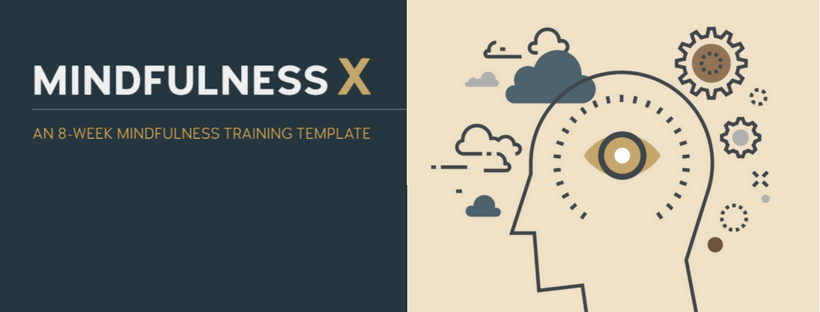Yoga is a centuries-old practice that originated in ancient India and has been gaining popularity around the world due to its numerous mental and physical health benefits. The practice of yoga involves a combination of physical postures, breathing techniques, meditation, and relaxation, all of which work together to create a sense of harmony and balance in the body and mind. In this article, we will explore 60+ benefits of yoga for mental and physical health.
1. Improves flexibility: One of the most well-known benefits of yoga is its ability to improve flexibility and range of motion in the body. Through a series of gentle stretching exercises, yoga helps to lengthen and loosen tight muscles, making it easier to move and preventing injuries.
2. Increases strength: Yoga also helps to build strength in the muscles, particularly in the core and lower body. By holding poses for extended periods of time, yogis can strengthen their muscles without the need for heavy weights or equipment.
3. Boosts cardiovascular health: Some forms of yoga, such as Vinyasa or power yoga, can provide a cardiovascular workout that improves heart health and circulation.
4. Improves balance and coordination: The focus on balance in many yoga poses helps to improve coordination and proprioception, which is the body’s sense of where it is in space.
5. Enhances concentration and focus: The practice of mindfulness in yoga can help to improve concentration and focus, both on and off the mat.
6. Reduces stress and anxiety: The deep breathing and relaxation techniques in yoga help to activate the body’s relaxation response, reducing stress hormones and calming the mind.
7. Improves sleep: Regular practice of yoga has been shown to improve sleep quality and duration, making it easier to fall asleep and stay asleep throughout the night.
8. Increases self-awareness: Yoga encourages practitioners to be present in the moment and tune into their bodies, emotions, and thoughts, leading to a greater sense of self-awareness and self-acceptance.
9. Boosts mood: The release of endorphins during yoga practice can help to uplift mood and reduce symptoms of depression and anxiety.
10. Enhances emotional well-being: Yoga teaches coping mechanisms for dealing with difficult emotions and situations, leading to greater emotional resilience and well-being.
11. Improves posture: Yoga helps to strengthen the muscles that support proper posture, leading to improved alignment and reduced back and neck pain.
12. Supports weight management: Regular yoga practice can help to regulate appetite, improve digestion, and promote a healthy metabolism, all of which can support weight loss and maintenance.
13. Relieves tension headaches: The relaxation techniques in yoga can help to reduce tension in the muscles and alleviate headaches caused by stress or poor posture.
14. Boosts immune system: The stress-reducing and immune-boosting effects of yoga can help to support overall health and well-being.
15. Increases lung capacity: The focus on deep breathing in yoga can help to increase lung capacity and improve respiratory function.
16. Reduces inflammation: Some studies suggest that yoga may help to reduce inflammation in the body, which is associated with chronic diseases such as heart disease, diabetes, and arthritis.
17. Supports detoxification: The twisting and stretching poses in yoga can help to stimulate the lymphatic system, which is responsible for removing toxins from the body.
18. Improves circulation: The combination of movement and deep breathing in yoga can help to improve blood flow and circulation, leading to better oxygenation of the tissues and organs.
19. Supports joint health: Yoga can help to improve joint mobility and reduce stiffness, which is especially beneficial for individuals with arthritis or other joint conditions.
20. Reduces chronic pain: The gentle stretching and relaxation techniques in yoga can help to reduce chronic pain in conditions such as fibromyalgia, back pain, and migraines.
21. Supports digestive health: The twisting poses in yoga can help to stimulate digestion and improve gut health, leading to better nutrient absorption and waste elimination.
22. Improves balance and stability: The focus on balance in yoga can help to improve stability and reduce the risk of falls, particularly in older adults.
23. Enhances memory and cognitive function: Some studies suggest that yoga may help to improve memory and cognitive function, potentially reducing the risk of dementia and cognitive decline.
24. Supports rehabilitation: Yoga can be a safe and effective form of rehabilitation for individuals recovering from injuries, surgeries, or chronic conditions.
25. Boosts creativity: The mindfulness and relaxation techniques in yoga can help to cultivate creativity and inspiration, leading to greater artistic expression and problem-solving abilities.
26. Enhances self-esteem: The sense of accomplishment and self-empowerment that comes from mastering challenging yoga poses can help to boost self-esteem and confidence.
27. Reduces symptoms of PTSD: Yoga has been shown to be an effective complementary therapy for individuals with post-traumatic stress disorder (PTSD), helping to reduce symptoms such as anxiety, flashbacks, and hypervigilance.
28. Increases overall well-being: The holistic approach of yoga to physical, mental, and emotional health can help to support overall well-being and quality of life.
29. Improves relationships: The mindfulness and self-awareness cultivated in yoga can help to improve communication, empathy, and conflict resolution skills, leading to healthier and more fulfilling relationships.
30. Enhances spiritual connection: For many individuals, yoga is a spiritual practice that helps to deepen their connection to themselves, others, and the divine, leading to a deeper sense of meaning and purpose in life.
31. Supports healthy aging: Yoga can help to maintain flexibility, strength, balance, and cognitive function as individuals age, leading to a higher quality of life in later years.
32. Boosts energy levels: The deep breathing and relaxation techniques in yoga can help to increase energy levels and reduce fatigue, making it easier to stay active and engaged throughout the day.
33. Improves sports performance: Yoga can help to improve flexibility, strength, balance, and mental focus, all of which can enhance sports performance and reduce the risk of injuries.
34. Supports recovery from addiction: Yoga has been shown to be an effective complementary therapy for individuals recovering from addiction, helping to reduce cravings, stress, and cravings.
35. Enhances parenting skills: The mindfulness and patience cultivated in yoga can help parents to be more present, patient, and compassionate with their children, leading to healthier and more harmonious family dynamics.
36. Boosts creativity: The mindfulness and relaxation techniques in yoga can help to cultivate creativity and inspiration, leading to greater artistic expression and problem-solving abilities.
37. Improves communication skills: The focus on mindful listening and empathy in yoga can help to improve communication skills, making it easier to connect with others and express oneself effectively.
38. Reduces burnout: The stress-reducing techniques in yoga can help to prevent burnout and compassion fatigue in caregivers, teachers, and other high-stress professions.
39. Enhances resilience: The coping mechanisms and mindfulness skills in yoga can help to build resilience and adaptability in the face of challenges and adversity.
40. Supports trauma recovery: Yoga has been shown to be an effective complementary therapy for individuals recovering from trauma, helping to reduce symptoms such as anxiety, depression, and dissociation.
41. Boosts mindfulness: The focus on mindfulness in yoga can help to increase present-moment awareness and attention, leading to greater clarity, insight, and self-understanding.
42. Enhances compassion: The mindfulness and empathy cultivated in yoga can help to increase compassion and kindness towards oneself and others, leading to greater emotional well-being and social connection.
43. Improves body image: The focus on self-acceptance and self-compassion in yoga can help to improve body image and reduce negative self-talk and comparison with others.
44. Promotes sustainability: The holistic approach of yoga to physical, mental, and emotional health can help to create a sustainable lifestyle that supports personal health, social well-being, and environmental stewardship.
45. Supports social connection: Yoga classes and retreats can provide opportunities for social connection and community support, leading to greater sense of belonging and interpersonal relationships.
46. Enhances creativity: The focus on mindful awareness and self-expression in yoga can help to enhance creativity and innovation in artistic, professional, and personal pursuits.
47. Boosts emotional intelligence: The mindfulness and emotional regulation skills in yoga can help to increase emotional intelligence, leading to better self-awareness, self-regulation, empathy, and social skills.
48. Improves communication and leadership skills: The focus on mindful listening, empathy, and assertiveness in yoga can help to improve communication and leadership skills, making it easier to connect with others, make decisions, and inspire change.
49. Supports sustainable living: The holistic approach of yoga to physical, mental, and emotional health can help to promote sustainable living practices that support personal health, social well-being, and environmental stewardship.
50. Promotes social justice: Yoga can be a tool for social justice and change, promoting equity, diversity, inclusion, and accessibility in the yoga community and beyond.
51. Enhances global citizenship: The values of yoga, such as unity, compassion, and non-violence, can help to cultivate a sense of global citizenship and interconnectedness with all living beings.
52. Supports environmental stewardship: The mindfulness and respect for nature cultivated in yoga can help to promote environmental stewardship, leading to more sustainable and ethical lifestyle choices.
53. Boosts community engagement: Yoga classes, workshops, and retreats can provide opportunities for community engagement and social connection, leading to greater social support and sense of belonging.
54. Promotes social justice: Yoga can be a tool for social justice and change, promoting equity, diversity, inclusion, and accessibility in the yoga community and beyond.
55. Enhances global citizenship: The values of yoga, such as unity, compassion, and non-violence, can help to cultivate a sense of global citizenship and interconnectedness with all living beings.
56. Supports environmental stewardship: The mindfulness and respect for nature cultivated in yoga can help to promote environmental stewardship, leading to more sustainable and ethical lifestyle choices.
57. Boosts community engagement: Yoga classes, workshops, and retreats can provide opportunities for community engagement and social connection, leading to greater social support and sense of belonging.
58. Promotes social justice: Yoga can be a tool for social justice and change, promoting equity, diversity, inclusion, and accessibility in the yoga community and beyond.
59. Enhances global citizenship: The values of yoga, such as unity, compassion, and non-violence, can help to cultivate a sense of global citizenship and interconnectedness with all living beings.
60. Supports environmental stewardship: The mindfulness and respect for nature cultivated in yoga can help to promote environmental stewardship, leading to more sustainable and ethical lifestyle choices.
In conclusion, yoga offers a wealth of physical and mental health benefits that can enhance overall well-being and quality of life. By incorporating yoga into your daily routine, you can experience improved flexibility, strength, balance, and mental clarity, as well as reduced stress, anxiety, and depression. Whether you are a beginner or an experienced yogi, there is a style of yoga that can meet your needs and help you achieve your health and wellness goals. So unroll your mat, take a deep breath, and start reaping the many benefits of yoga for your body, mind, and soul.



